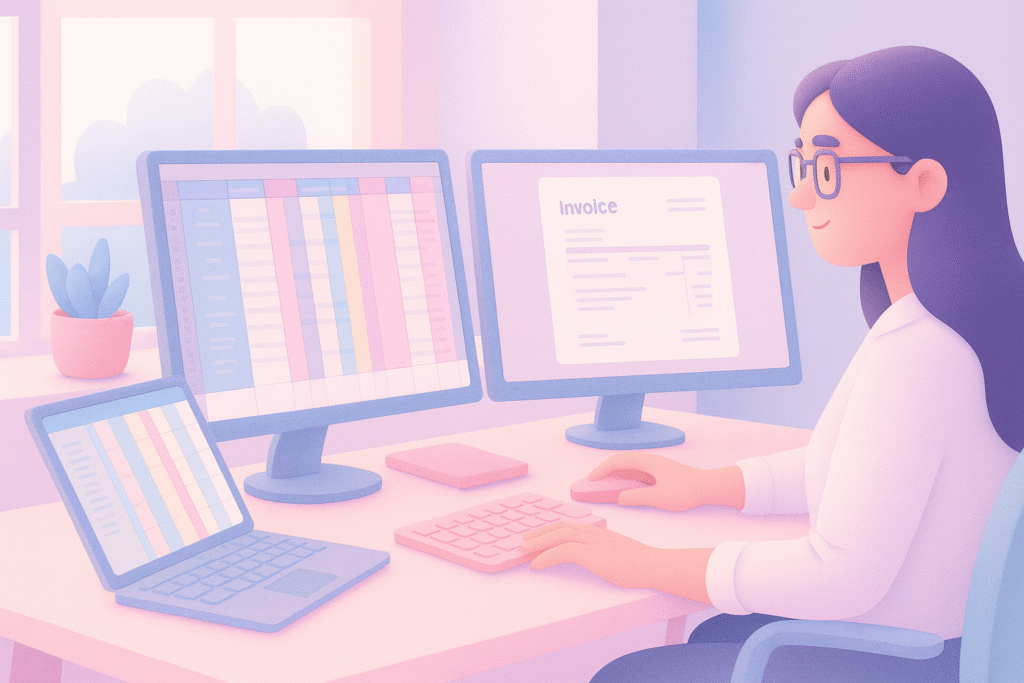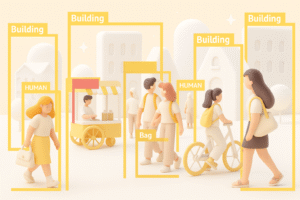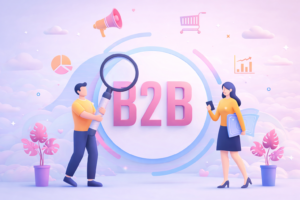In 2025, accounting has transformed beyond traditional desktop software and pen-and-paper methods.
With the onset of digital transformation, cloud accounting has emerged as a popular alternative to desktop accounting.
Both systems offer unique advantages and limitations; deciding to choose between these two is a crucial one.
This choice addresses diverse business requirements across various industries.
This comprehensive blog explores the advantages and disadvantages of cloud accounting versus desktop accounting and guides how to choose the right option for your business.
What is Desktop Accounting?

Desktop accounting software is an accounting application that is installed and run locally on an individual’s system, i.e., laptops or computers.
Unlike cloud-based solutions, it operates directly from the user’s computer.
This software has traditionally been a popular choice for small and medium-scale businesses, mainly due to its reliability.
While it can handle basic accounting-related functionalities, it often lacks the ability to handle the growing demands of the organizations.
This limitation can hinder a company’s ability to understand and respond to changing business conditions.
Key Features:
- Accounting data and operations are stored and managed on the computers.
- Limited access to information
- Software is installed and executed on a single device
Advantages of Desktop Accounting
- Offline Access
Desktop accounting software operates without internet connectivity and ensures uninterrupted work even in areas with unreliable connectivity.
- One-Time Purchase
Many desktop software options operate with a one-time purchase, which makes them a cost-effective choice compared to monthly/yearly subscriptions.
- Data Control
Businesses use desktop accounting software to retain complete control over the data stored locally, without being vulnerable to third-party access.
- Customizable
Desktop accounting software can often be customized to meet its specific business needs or preferences, while still offering a range of built-in rich features.
- Familiarity
Businesses that have been using desktop accounting software for an extended period find it easier to manage since their staff are already trained in its use.
Limitations of Desktop Accounting
- Limited Accessibility
The desktop accounting software restricts access to financial data to certain systems, which hampers the smooth operation of businesses with remote teams.
- Lack of Real-time Collaboration
This software doesn’t allow users to work collaboratively on documents concurrently.
- Manual Updates and Backup Systems
Desktop accounting software requires manual updates and backup services. So, there are increasing possibilities of data loss.
What is Cloud Accounting?

Cloud accounting refers to accounting software that is further managed by a software vendor, with data stored on a secure server.
Moreover, organizations do not need to purchase or install, or manage accounting software on their own. Instead, they pay on a subscription basis.
This kind of flexibility is a key feature of modern accounting systems.
Key Features
- Data can be accessed from any device with an internet connection
- Payment models are based on subscriptions
- Automatic backups and updates
Advantages of Cloud Accounting
- Automatic Backups
The cloud service providers handle system upgrades automatically and ensure that the latest features are available. Additionally, automatic backups minimize the risks of data loss.
- Cost-Effective
Cloud-based solutions use a monthly subscription model, allowing organizations to pay only for the features they need at any particular instance. And, this flexibility enables them to scale their requirements accordingly.
- Improved Security
Most cloud operators implement robust security measures, such as data encryption, access control, multi-factor authentication, and secure data centers. These measures often exceed the safety protocols of in-house servers.
To help users stay informed and protected, it is important to follow cloud security tips regularly.
- Accessibility and Flexibility
One of the key benefits of cloud systems is that they allow accountants, teams, and business owners to access sensitive and confidential data from anywhere at any time. This is especially beneficial for businesses with multiple locations or those opting for remote work.
- Real-Time Collaboration
With cloud-based accounting software, multiple users can work on the business’s financial information at the same time and make relevant changes in real time.
Limitations of Cloud Accounting
- Minimal Customization Features
Some cloud accounting software provides minimal customization options compared to desktop accounting software. And, this limitation gradually reduces the flexibility needed to meet organizational requirements.
- Dependence on Internet Connectivity
Cloud-based software relies on internet connectivity. As a result, work can be disrupted if there are any interruptions in the internet connectivity.
- Risk of Data Breach
Storing financial data in the cloud raises concerns about data security. As such, there is a risk of unauthorized access to sensitive information, which can lead to potential breaches.
Cloud Accounting vs Desktop Accounting – A Detailed Comparison
| Key Factor | Desktop Accounting | Cloud Accounting |
| Payment method | One-time payment methods, may need upgrades as your business grows | A subscription-based payment model considering the number of users and software features |
| Accessibility | Data is accessible by local devices even without internet connectivity | Organization’s data can be accessed from anywhere and at any time with an internet connection |
| Security | Organizations must safeguard their data to avoid breaches | Software vendors provide enterprise-grade security, access controls, and reliable backup servers |
| Installation and updates | Businesses must install the software and subsequent upgrades manually | Organizations use the latest software, which automatically receives updates. |
| Recovery and backup techniques | Users must perform manual backups regularly to ensure that the organization doesn’t lose any valuable information, even in unpredictable situations | Professionals have access to the accounting software and sensitive organization data, even if there is a system breakdown |
| Multi entities | This software is primarily designed for single businesses and doesn’t support multi-entity business configurations. | This software supports multi-entity businesses with subsidiaries and international business operations |
| Integration | Limited access to integrate with other business applications. There is only one possibility of manual data transfer | It offers real-time data visibility across the businesses and allows seamless integration with other business applications |
Which One to Choose?
Selecting between desktop accounting and cloud accounting software depends on the type of business, working style, and business size. Here are the detailed comparative features:
Choose desktop accounting software, if…
- You operate in an unreliable internet connectivity environment
- You like to have local control over your financial data
- Your business accounting needs are basic and don’t require multi-user access
- You prefer a one-time payment instead of regular subscriptions
Choose Cloud-based accounting software, if…
- You would like to collaborate in real-time with multiple team members.
- You need a scalable and flexible solution for your growing business.
- You want automatic backups for your data.
- You need to access business data from multiple locations or branches.
Conclusion
Several factors influence the decision to choose between desktop and cloud-based accounting software, such as organizational size, budget constraints, security measures, and more.
Desktop accounting software is appealing for businesses that prefer a one-time investment and require offline functionality, while cloud accounting software provides scalability, flexibility, and real-time collaboration, making it an ideal choice for modern businesses.
When choosing between these two accounting software services, businesses must carefully consider security aspects, long-term requirements, cost, and accessibility.
While many businesses today embrace cloud accounting. However, it is advisable to choose the one that considers your organizational growth and priorities.








